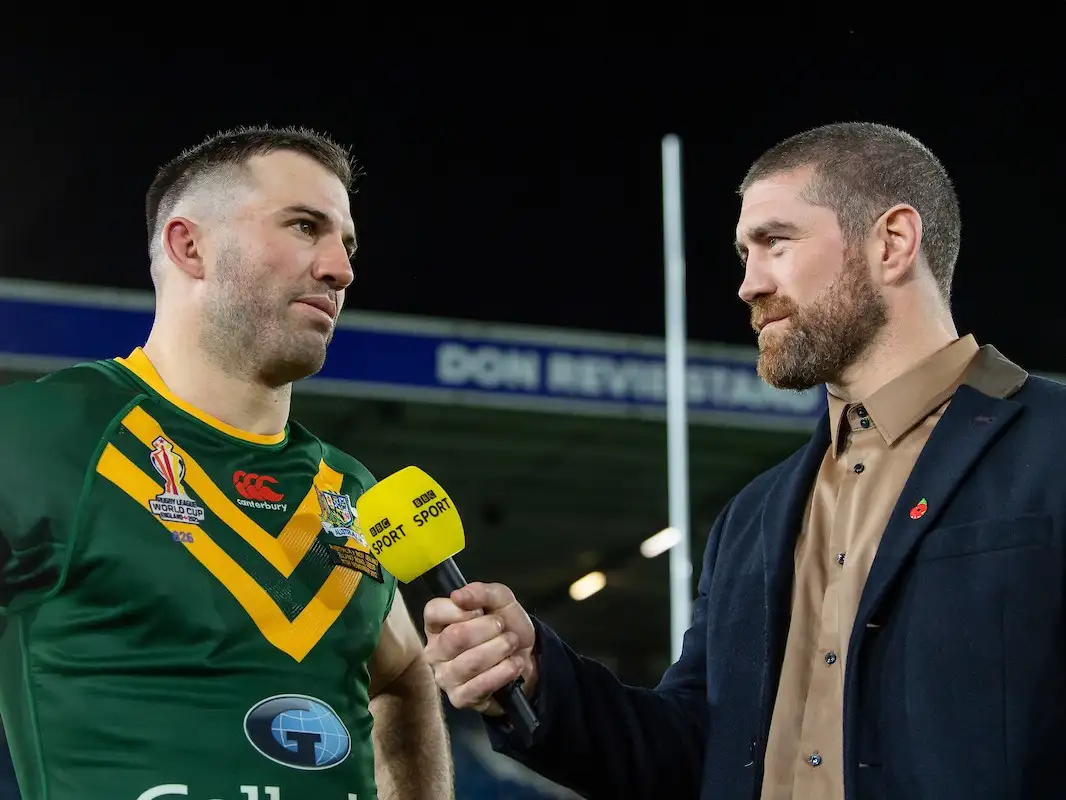Nearly 30 million tuned in to World Cup coverage on BBC

Picture by Allan McKenzie/SWpix.com
World Cup organisers have hailed the impact of the tournament, as they revealed that nearly 30 million people tuned in to watch it on BBC.
All 61 games in the men’s, women’s and wheelchair tournaments were broadcast either live on TV or streamed via the BBC’s platforms, resulting in a cumulative match average audience of 29.24m.
The Wheelchair final between England and France attracted a peak audience of 1.3m people, in front of a world record crowd of more than 4,500 people at Manchester Central.
The biggest TV audience across all 61 games was for England against Samoa in the men’s semi-final, which boasted a peak audience of 2.8m and a 23% audience share.
England women’s semi-final against New Zealand saw a combined peak of 1.4m, and another two matches in the women’s tournament attracted audiences of more than a million.
A total of 46% of the viewership was based south of the Midlands, with 40% of the TV audience share female, two encouraging statistics for the sport.
Rugby League World Cup 2021 Chief Executive, Jon Dutton, said: “Our ambition for Rugby League World Cup 2021 was to make the tournament the biggest, best and most inclusive World Cup in the sport’s 127-year history, and I think we’ve achieved that and more.
“We overcame huge obstacles to make it happen, including the pandemic and the subsequent postponement but these numbers clearly show that the tournament was worth waiting for. Nearly half a million people came through the turnstiles in the middle of a cost-of-living crisis, with millions more tuning in to watch the matches on television or online.
“The appetite for all three tournaments has been extraordinary, with record breaking attendances across men’s, women’s and wheelchair events. I hope we have demonstrated the appetite for all three disciplines and laid a platform for international rugby league to build on in the future with France 2025 and beyond.”
Australia won both the men’s and women’s finals, which attracted more than 400,000 people to watch from their home country, despite the matches kicking off at 3am down under.
World Cup organisers have been highlighting the impact of its social programme, digital exposure and the record attendances attracted.